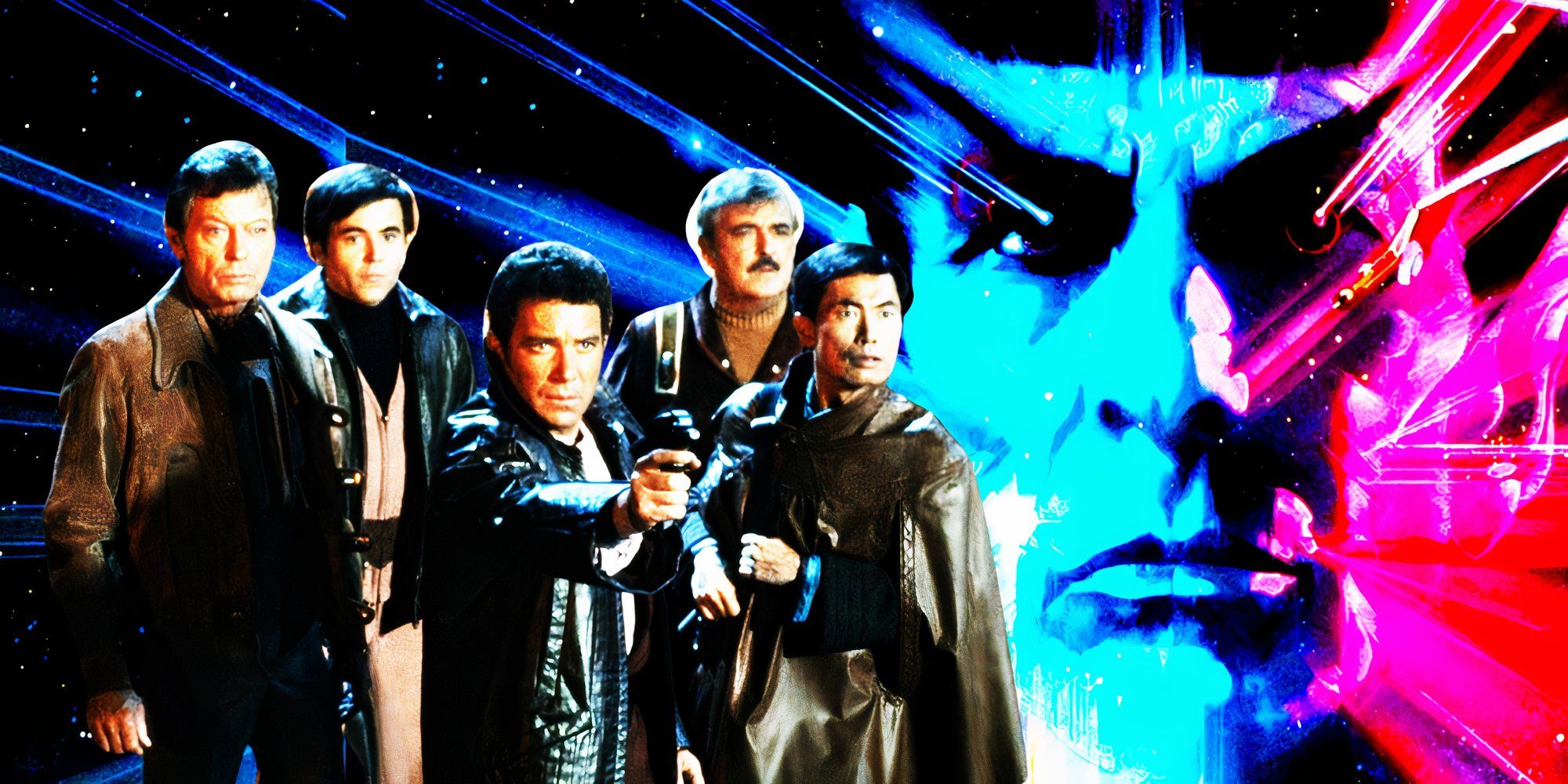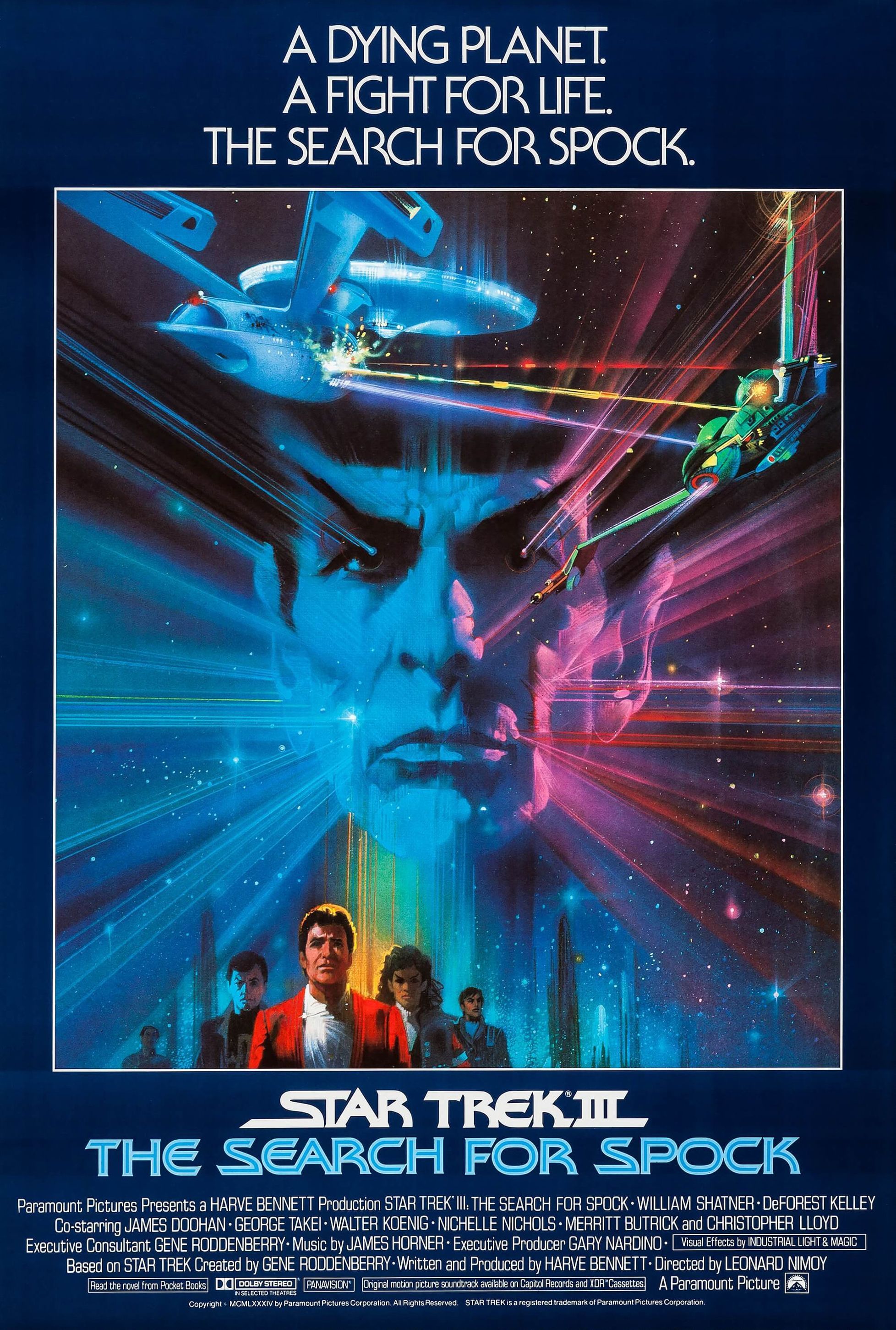Star Trek III: The Search for Spock makes an incorrect statement about how old Admiral James T. Kirk’s (William Shatner) USS Enterprise was. Star Trek III picked up directly after the events of Star Trek II: The Wrath of Khan, which culminated in the death of Captain Spock (Leonard Nimoy). Star Trek III would feature the death of another beloved and iconic Star Trek: The Original Series ‘character’: the Starship Enterprise itself.
At the beginning of the underrated Star Trek III: The Search for Spock, the USS Enterprise returned to Spacedock. Admiral Kirk assumed his starship would undergo repairs and be placed back on active duty. However, Fleet Admiral Morrow (Robert Hooks), the Commander of Starfleet, informed Kirk the Enterprise was at the end of its run and would be decommissioned. Morrow’s rationale: “Jim, the Enterprise is 20 years old. We feel her day is over.” Morrow’s reasoning may have been sound, but why was his count of the Enterprise’s age off by two decades?
Why Star Trek III Is Wrong About Kirk’s Enterprise Being 20 Years Old
The Starship Enterprise Was Actually Twice As Old
Star Trek III: The Search for Spock takes place in 2285, and at that point, the USS Enterprise is actually 40 years old. The Constitution Class heavy cruiser USS Enterprise NCC-1701 launched in 2245 under the command of Captain Robert April (played by Adrian Holmes as Admiral April in Star Trek: Strange New Worlds). By the time Captain James T. Kirk took command of the Enterprise from Captain Christopher Pike (Jeffrey Hunter, Anson Mount), the legendary starship was already 20 years old.

Related
Star Trek 3: The Search For Spock Cast Guide & Where Are They Now?
Star Trek III: The Search for Spock resurrected Spock, but what did it do for William Shatner, Leonard Nimoy, and the cast’s career prospects?
Admiral Morrow only counting the USS Enterprise’s age at 20 years in Star Trek III: The Search for Spock reflects a few rationales. In the real world, Star Trek III premiered in 1984, 20 years after Star Trek‘s original pilot, “The Cage,” was rejected by NBC. It was also close to 20 years since Star Trek: The Original Series premiered in 1966. Admiral Morrow saying the Enterprise was 20 reflects how old Star Trek was in 1984, and was also an effort to not confuse audiences with canon minutia that the Enterprise launched in 2245 under a Captain who wasn’t Kirk and was only seen at that point in Star Trek: The Animated Series.
Star Trek: The Original Series’ USS Enterprise Lifespan Explained
NCC-1701 Was The Longest Serving Starship Enterprise
The Constitution Class USS Enterprise NCC-1701 was the longest-serving known version of the Starship Enterprise, and arguably the most legendary incarnation. After the Enterprise’s first successful five-year mission, Captain April accepted a promotion to Admiral and turned over command to Captain Pike in 2250. Pike led the Enterprise for 15 years before Captain Kirk began his legendary five-year mission in 2265. By then, the USS Enterprise underwent a few refits, including a possible upgrade during Pike’s handover to Kirk.
At the end of Star Trek IV: The Voyage Home, Captain Kirk was given command of the Constitution Class USS Enterprise-A, which appeared in two more Star Trek movies before it was decommissioned in 2293,
In the 2270s, the USS Enterprise underwent its most significant refit as seen in Star Trek: The Motion Picture, where the starship was again commanded by Admiral Kirk. At some point afterward, the Enterprise became a training vessel for Starfleet Academy, with Captain Spock in command overseeing the cadets. Finally, Admiral Kirk destroyed his beloved Starship Enterprise in Star Trek III: The Search for Spock to keep it out of Klingon hands, marking the final end of the Constitution Class starship’s 40-year – not 20-year – lifespan.












